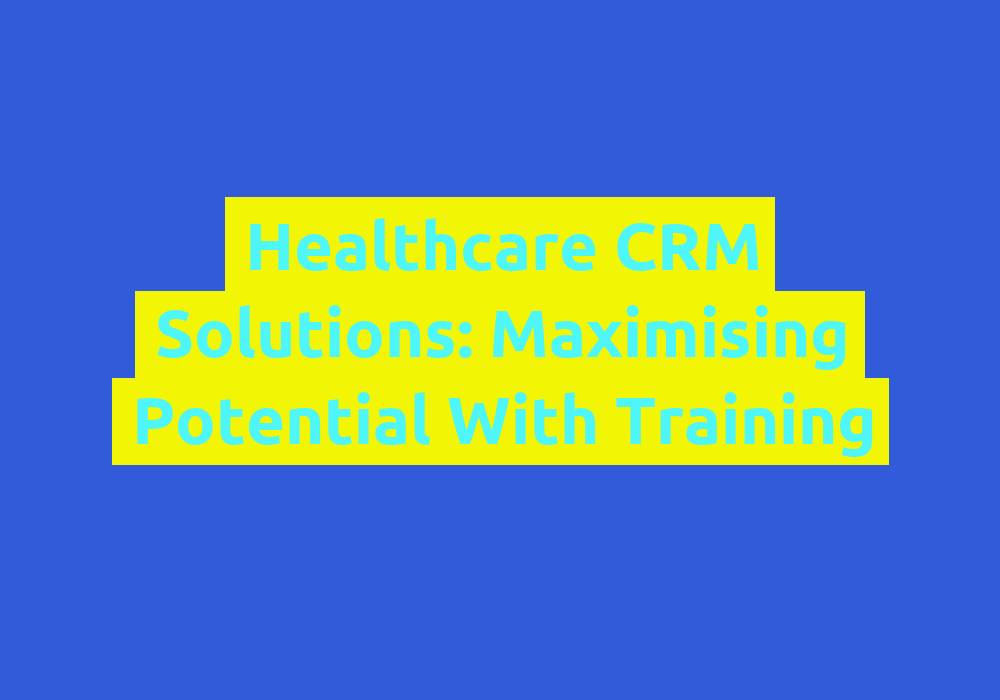Module Development in CRM: Merging Customisation with Functionality
In the current, rapidly evolving business landscape, Customer Relationship Management (CRM) systems have emerged as vital tools for enterprises of all sizes. CRM software empowers organisations to optimise their sales, marketing, and customer service functions, thereby managing their engagements with both customers and prospects efficiently. To genuinely unlock the full potential of CRM, it is essential to focus on customisation and flexibility. This is precisely where module development plays a pivotal role, providing the necessary enhancements to meet unique business needs.
Defining Module Development in CRM: Key Concepts and Importance
Module development in CRM encompasses the intricate process of designing and implementing bespoke modules or extensions within a CRM system to fulfil specific organisational requirements. These modules can be regarded as additional capabilities that enhance the fundamental features of the CRM software. By engaging in module development, businesses can effectively tailor their CRM systems to align with their distinct workflows, processes, and strategic objectives.
This customisation allows for the creation of tailored fields, user interfaces, dashboards, reports, and automation rules, among other functionalities, all designed to enrich the overall performance of the CRM system. Such enhancements not only improve user experience but also ensure that the system serves the precise needs of the organisation, enhancing overall efficiency and productivity.
Furthermore, module development in CRM offers organisations the adaptability required to respond to evolving business demands. This ensures that the CRM system remains in perfect sync with the unique requirements of the organisation, resulting in improved productivity and operational efficiency. By developing customised modules, companies can create an intuitive interface that resonates with their specific processes and terminology. This ultimately fosters greater user adoption and enhances employee efficiency, making navigation through the CRM system much more straightforward.
Additionally, module development enables organisations to streamline their workflows by automating repetitive tasks and establishing workflows that are in harmony with their specific operational processes. This leads to significant boosts in productivity, minimisation of manual errors, and overall enhanced efficiency. Businesses can also create custom modules that facilitate integration with other systems and platforms, promoting seamless data exchange among various applications. This guarantees that all critical information is readily available within the CRM system, empowering organisations to make informed decisions based on accurate and current data.
As businesses grow and evolve, module development allows for the effortless scaling of their CRM systems. When CRM requirements shift, module development provides the necessary scalability, ensuring that the CRM system can effectively manage increasing demands and complexities without sacrificing performance.
Step-by-Step Guide: How Module Development Works in CRM

The process of module development in CRM involves a structured methodology aimed at designing, creating, testing, and deploying custom modules within the CRM system. Below is a detailed step-by-step guide that outlines the module development process:
-
Identify Requirements: The initial step involves pinpointing the exact requirements and functionalities that need to be added or modified within the CRM system. This requires a comprehensive understanding of the unique needs of the business and determining how the custom module will effectively address those requirements.
-
Design and Planning: Once the requirements are clearly defined, the subsequent phase involves designing the module. This includes crafting wireframes, defining the user interface, and planning the overall architecture and functionality of the custom module.
-
Development: Following the design phase, the actual coding and programming of the module occur. This is where custom fields, screens, automation rules, and other functionalities are meticulously crafted in accordance with the defined requirements.
-
Testing and Quality Assurance: Once the module has been developed, it undergoes thorough testing and quality assurance processes to confirm its functionality and ensure it meets the desired specifications. This testing phase covers usability, performance, security, and compatibility with other modules and systems.
-
Deployment and Training: After successful testing, the custom module is implemented within the CRM system. This stage includes integrating it with the existing CRM architecture and providing necessary training to users, ensuring they can effectively leverage the new functionalities.
-
Maintenance and Upgrades: Module development is not a one-off process. Regular maintenance and updates are essential to ensure that the custom module continues to operate optimally and remains compatible with new CRM releases and system updates.
Key Considerations for Choosing the Ideal CRM Platform for Module Development
When embarking on module development, selecting the appropriate CRM platform that offers robust customisation capabilities and supports the module development process is of paramount importance. Here are several critical factors to consider when choosing a CRM platform:
-
Customisation Options: Seek out a CRM platform that provides extensive customisation features, such as the ability to create custom fields, user interfaces, workflows, and reports. This ensures that the platform can be tailored precisely to your specific business requirements.
-
Developer-Friendly Environment: It is crucial to ensure that the CRM platform offers a developer-friendly environment complete with comprehensive documentation, APIs, and development tools. This facilitates smooth module development and integration with other business systems.
-
Scalability: Opt for a CRM platform that can scale in tandem with your business growth. The platform should be capable of managing increasing data volumes, user expansion, and evolving business requirements without compromising system performance.
-
Third-Party Integrations: Consider the platform’s ability to seamlessly integrate with other essential business tools, such as marketing automation, email marketing, and helpdesk systems. This allows for streamlined data flow and a cohesive view of customer interactions.
Maximise Your CRM’s Potential: The Importance of Module Development
Engaging in module development within CRM systems empowers businesses to fully realise the potential of their CRM solutions by customising them to their specific needs. This practice enhances flexibility, user experience, workflow efficiency, data integration, and scalability. By adhering to a systematic module development process and selecting the right CRM platform, organisations can unlock the comprehensive power of customisation and functionality inherent in their CRM systems.
Note: The complete article is presented in markdown format as per the request.
Frequently Asked Questions about Module Development in CRM

1. What is module development in CRM?
Module development in CRM refers to the intricate process of creating bespoke modules or extensions within a CRM system to cater to specific business needs. These modules enhance the core functionalities of the CRM software, enabling businesses to tailor their CRM systems to align with their unique workflows, processes, and strategic goals.
2. How does module development work?
Module development in CRM encompasses a systematic approach, including identifying requirements, designing and planning the module, coding and development, testing and quality assurance, deployment and user training, and ongoing maintenance and upgrades. This comprehensive process ensures that the custom module operates effectively and meets the desired objectives.
3. What should I consider when selecting a CRM platform for module development?
When choosing a CRM platform for module development, consider factors such as available customisation options, a developer-friendly environment with thorough documentation and APIs, scalability to support business growth, and the capacity for integration with other essential business tools.
4. What advantages does module development in CRM offer?
Module development in CRM provides numerous benefits, including enhanced flexibility, improved user experience, streamlined workflows, seamless data integration with other systems, and scalability to adapt to changing business needs. By customising the CRM system through module development, organisations can maximise the efficacy of their CRM solutions, leading to improved productivity and operational efficiency.
Originally posted 2023-06-08 11:25:29.
The post Module Development in CRM: Merging Customisation with Functionality appeared first on Healthcare Marketing Service.



